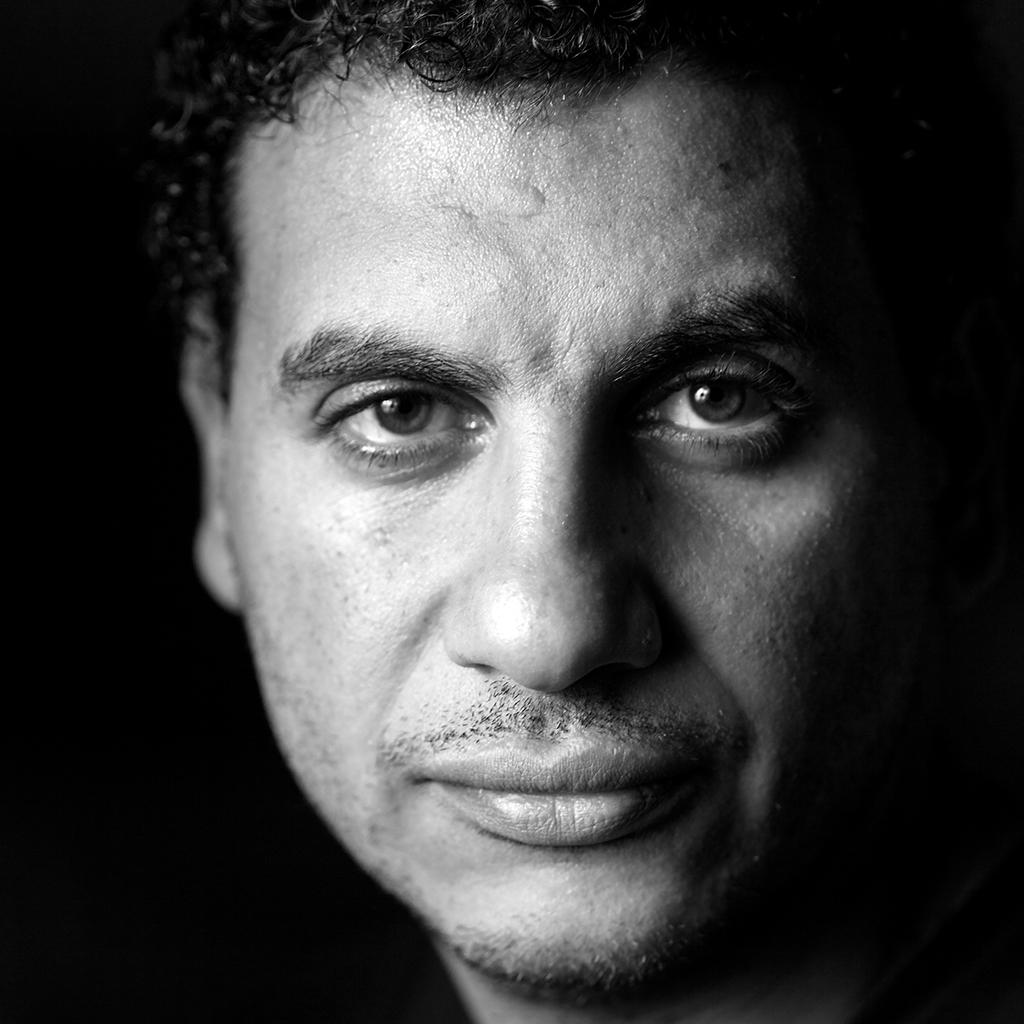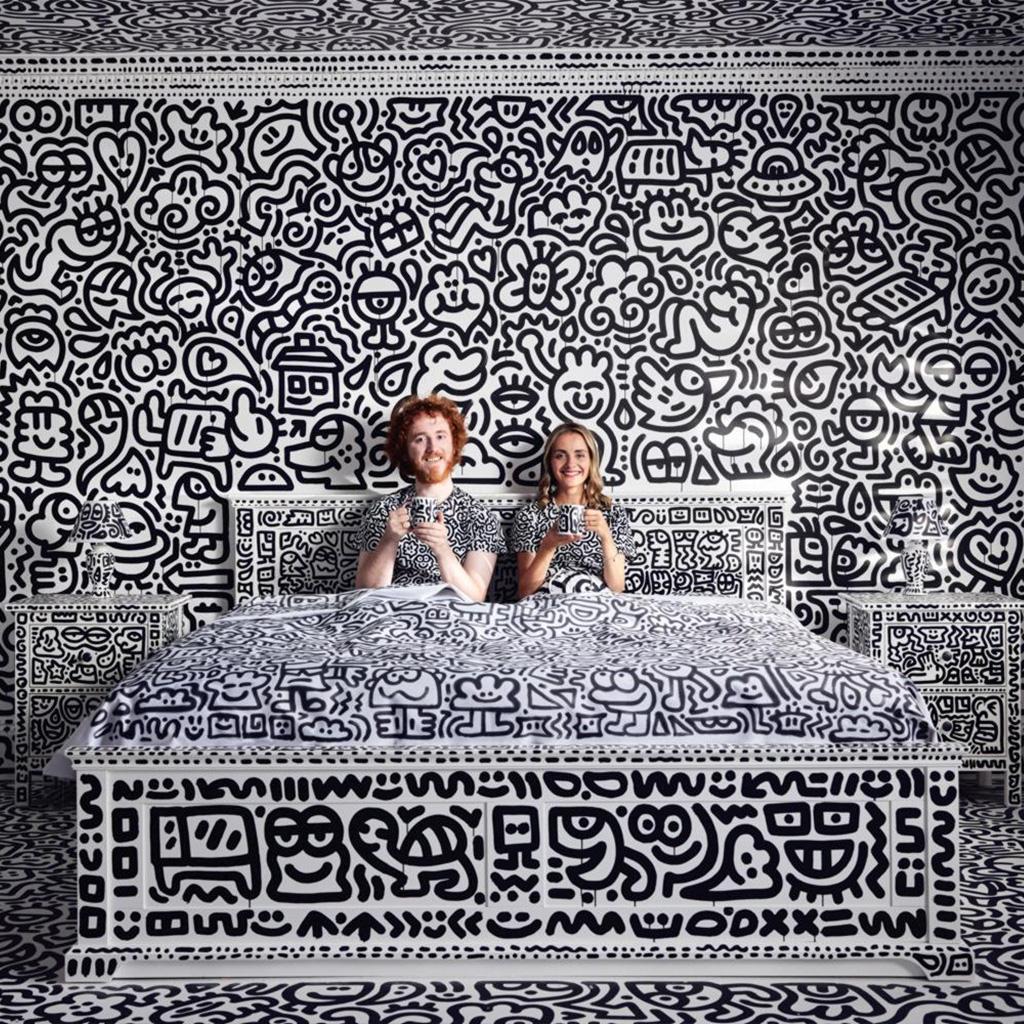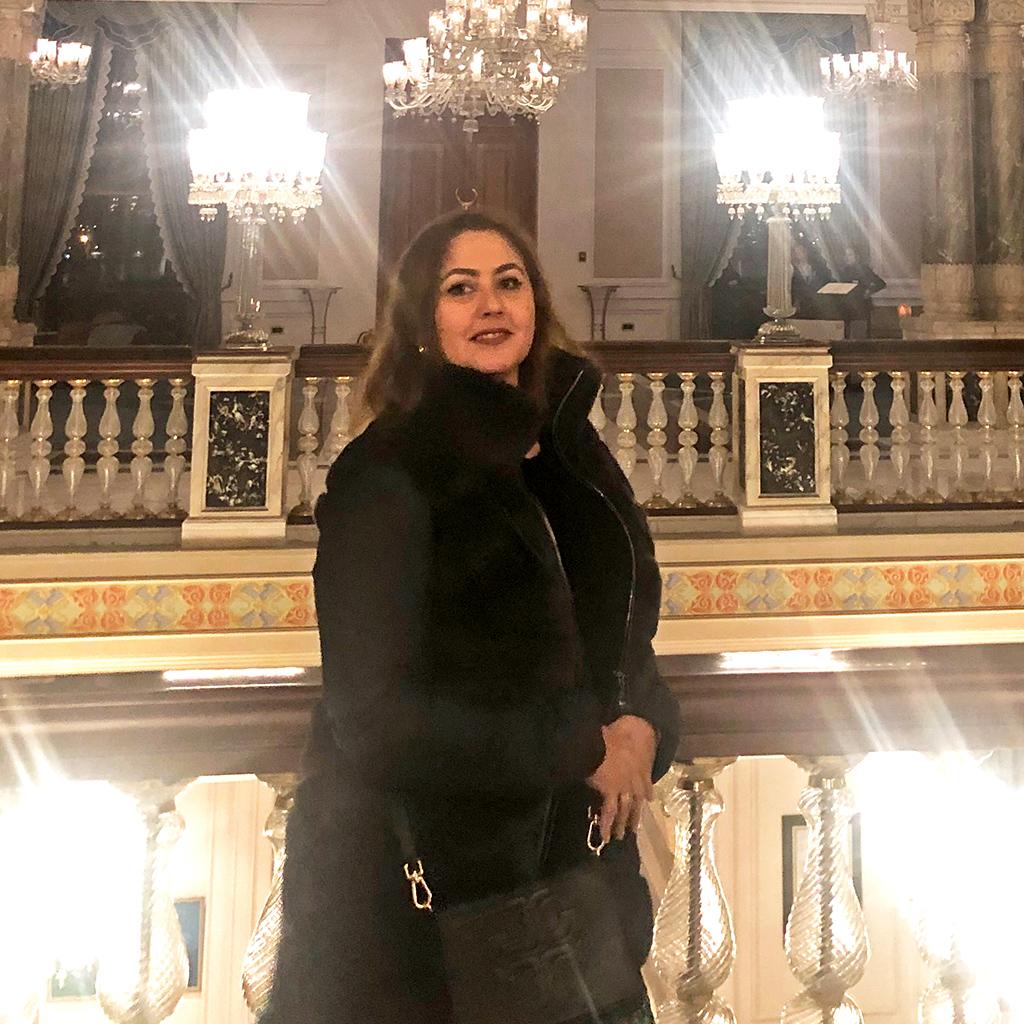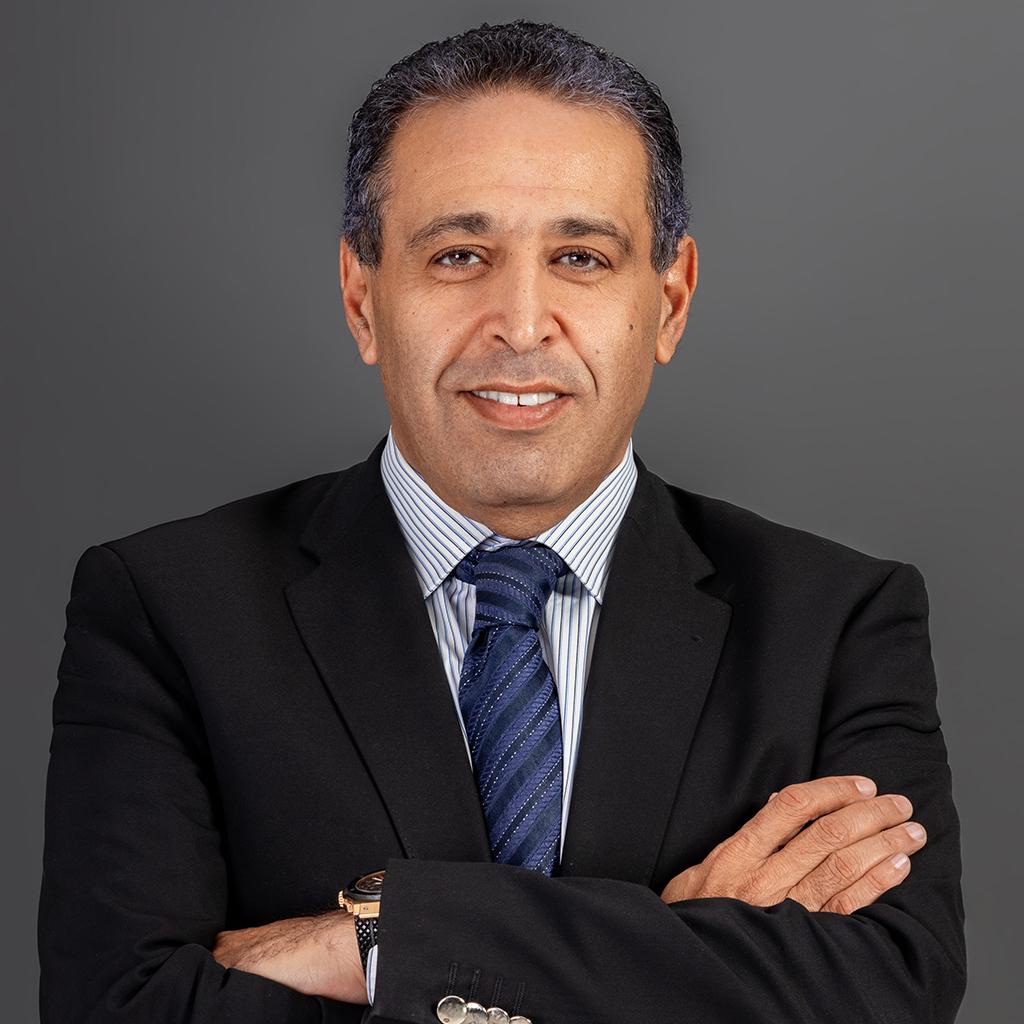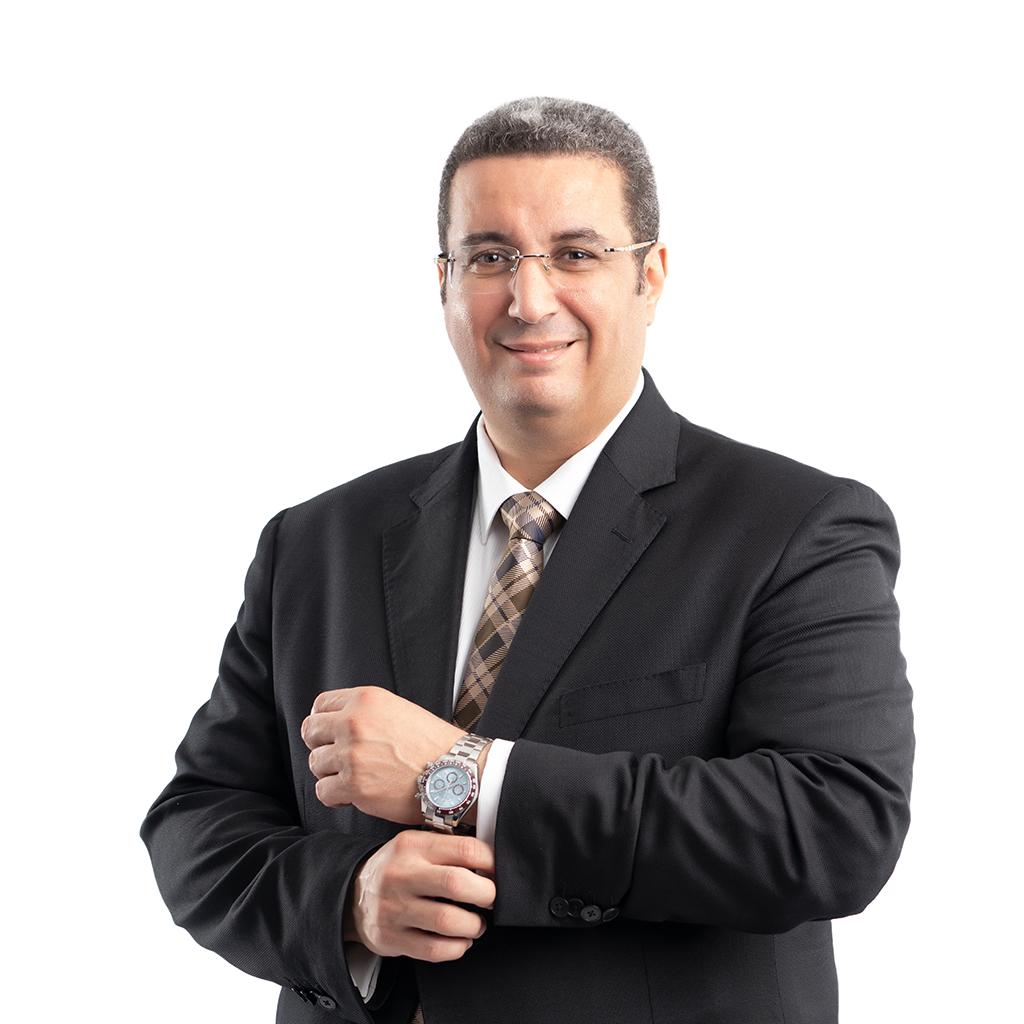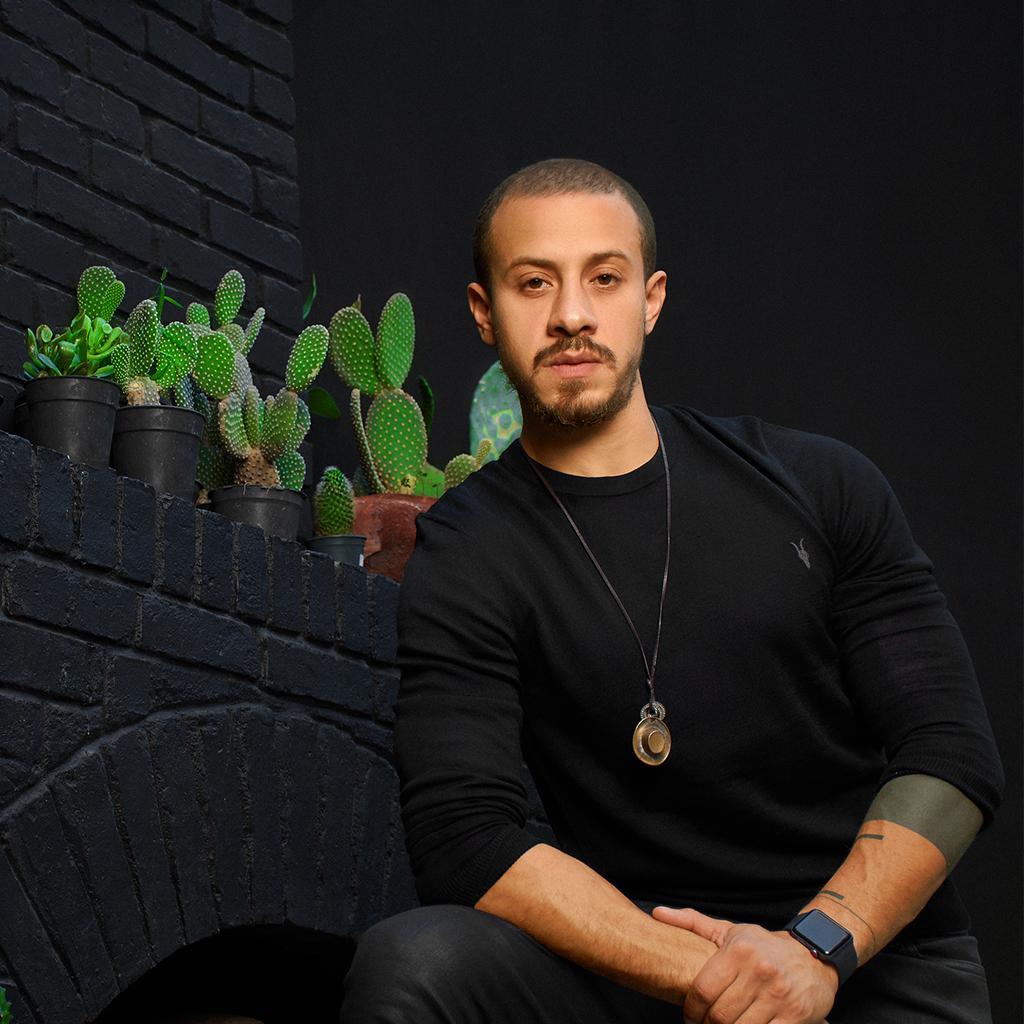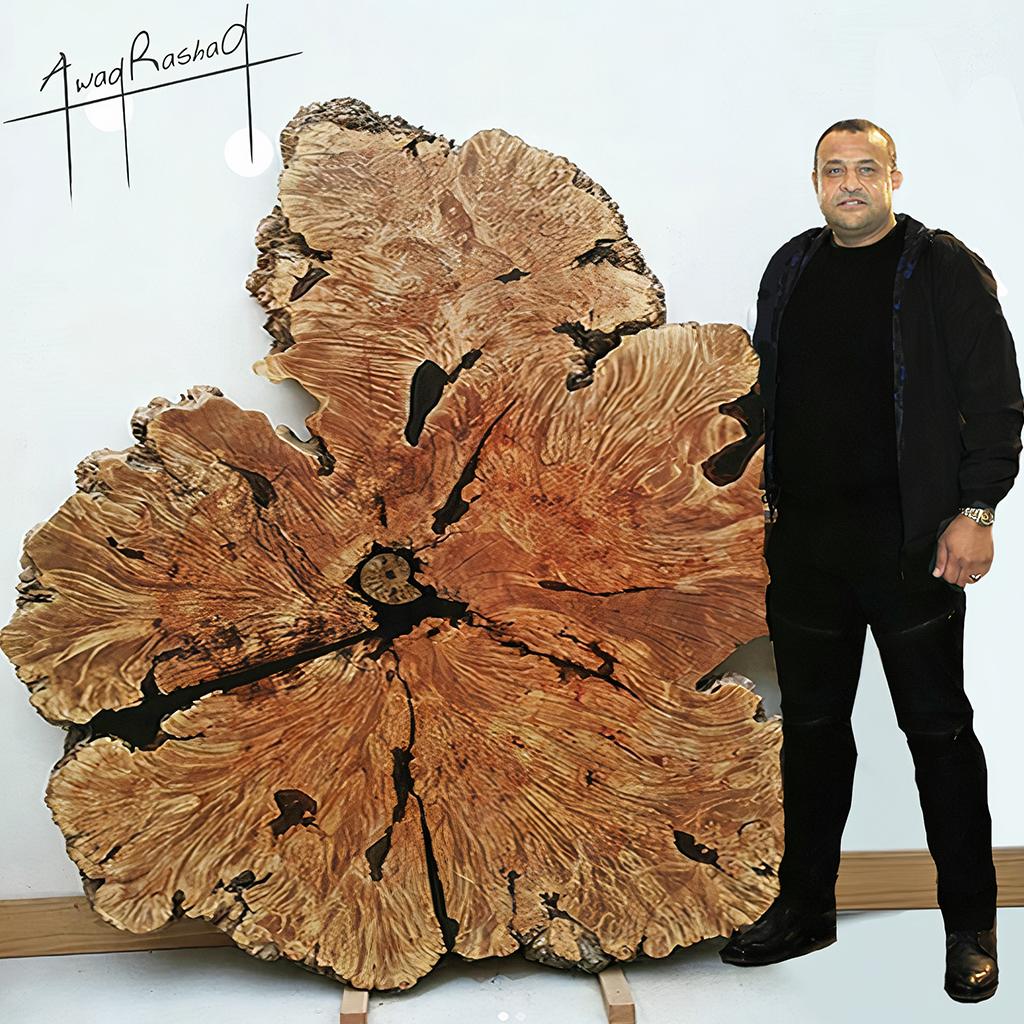
Written by: Yasmeen Ebada
Date: 2020-12-02
For the love of wood
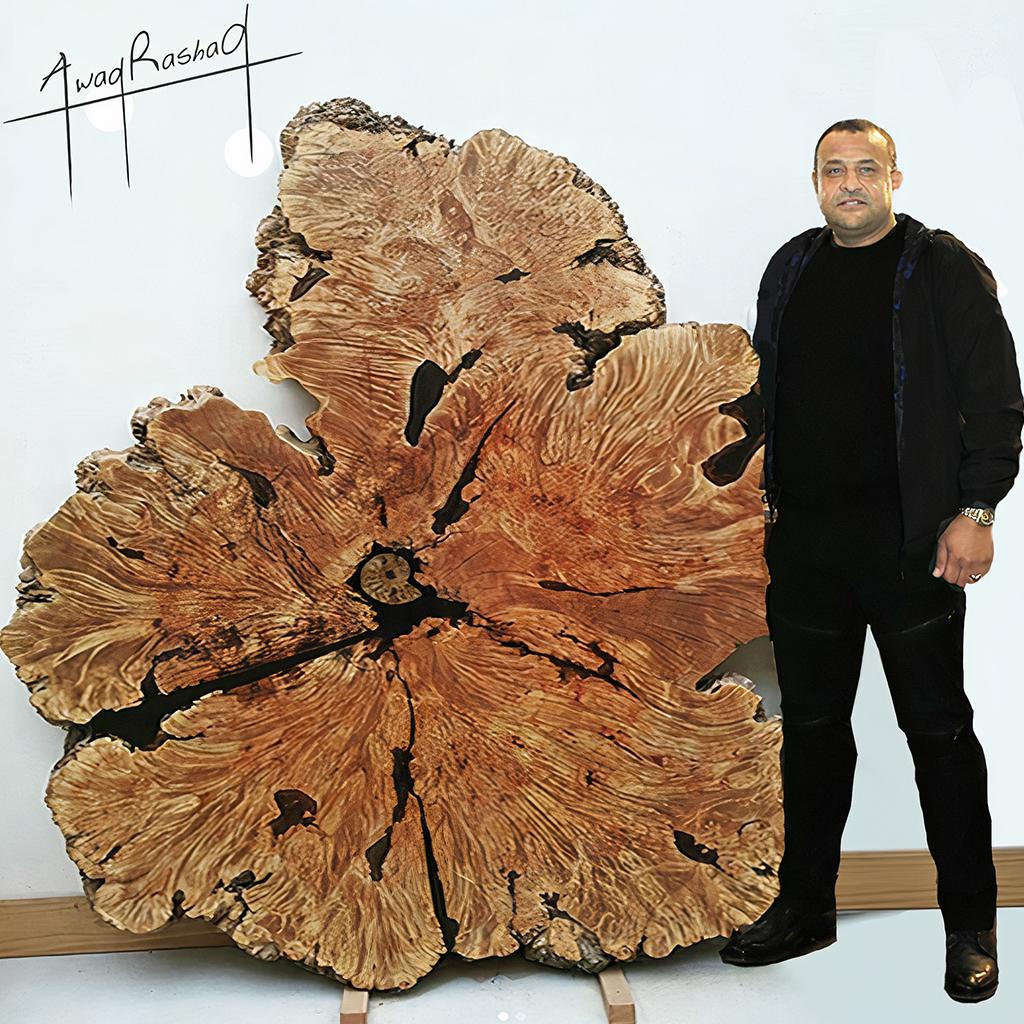
When you love something, you want to see it everywhere at all times
You can sense Awad Rashad’s love of wood as soon as you walk into his office. His office space is full of some of the best kinds of natural woods, including his chair made from American red oak and his desk made from red oak wenge veneer mixed with plantation teak. Rashad grew up learning everything there is to know from his grandfather and father about the science behind woodworking. It was no surprise that Rashad continued the family legacy in the third-generation family business.
The Rashad family has been working in the wood business since 1954, starting with Awad Rashad’s grandfather and followed by his father. Rashad and his brother, engineer Mohamed Rashad, are now running the business. In early 1996, Rashad and his brother were importing wood and working out of their factory in Damietta. Then, they started increasing the quantities of the imported wood because they started growing and wanted to be able to expand their client base and launched their company: ARO ART (the largest distributor of luxurious wood in Egypt). In 1996, they established the importation and trade business of wood for their company.
“We are not just in the import and trade business. Wood is a science,” Rashad said. “We travel everywhere in the world and visit different forests in the United States, Europe, and Africa to pick certain types of wood and introduce it to the Egyptian market.”
While traveling, Rashad tries the wood to determine which are appropriate for the Egyptian market. Rashad imports and trades many types of wood and has also made the varieties he sells his exclusive brand.
There are many different grades of wood (for example, first grade and second grade) that determine the standard of the wood. The kind of project the wood will be used for and the client’s budget are two huge factors that determine the quality of the wood that will be used in a project, Rashad said. Europe and the United States use different grading systems to determine the standard of the wood.

As Rashad explains it, the business of importing and trading wood is not easy. There are many types of wood, and his job is to advise the client on which kind of wood works best for the project.
“I treat the wood as if it’s a child. I’m interested in seeing it grow up, in raising it well, and in seeing it interact,” Rashad said.
Rashad spends approximately 20 days every month in different countries visiting different forests to examine the various kinds of woods and its characteristics to determine if it could sell in the Egyptian market. After years of experience and experimentation with different types of woods from all over the world, Rashad now is certain which woods will excel in the indoor or outdoor space.
“We determine which woods will adapt to the Egyptian market, if it will at all, from a specification standpoint, from a color standpoint, and if those specifications will thrive in the Egyptian community,” he said.
All of the wood that he imports and trades are 100% percent natural or manufactured from natural materials.
He imports and sells the following brands: IngLegno, Tropik, Faggio, Cherry Hill, and Spaan.
IngLegno is European beech veneer layers of wood. Its thickness starts from 35 millimeters and could reach 24 centimeters. The specifications of this kind of woodare what make it unique. The stem of the tree is cut to veneer reaching approximately five millimeters thick, and then, the wood is pressed with a hard type of glue to be able to form unique cuts of wood. The sheets could reach up to two meters in width.
“Its cuts are unique in shape and size,” he said.
The wood panel’s length could start from two and a half meters and reach six meters.
When cut in this situation, the wood is then treated to be processed and used indoors and outdoors, Rashad said. It is used in construction work in Europe frequently, Rashad said. They are the sole providers of this kind of wood in Egypt.
The wood has a unique shape due to the result of the layers of the veneer when pressed together. The shape and texture of the sheets are the result of the aggregation, so its unique dark brown color of the glue holds the different sheet layers producing a beautiful shape that has a unique longitudinal texture.
The dimensions of the sheets form a natural wood. The lengths and widths of the sheets could start from 60 centimeters and reach two meters. The thickness could start from 18 millimeters and reach 30 centimeters.
“The climate does not affect it. Therefore, it could be used outdoors. However, I recommend minimizing its usage outdoors. It lasts for years as well. You can make anything out of it,” he said. “For outdoors, I could use it to make a chair or an outdoor table.”
According to Rashad, Tropik(a group of tropical woods including teak, iroko, plantation, and Brazilian teak) is an outdoor wood. This brand of various woods is made for the people who do not want marble, ceramic, or stone in the outdoor space and prefer wood. It could be used around the swimming pool since water does not affect this brand of wood.Any kind of wood that is used outdoors could be used indoors as well. However, the opposite is not necessarily true, Rashad said.
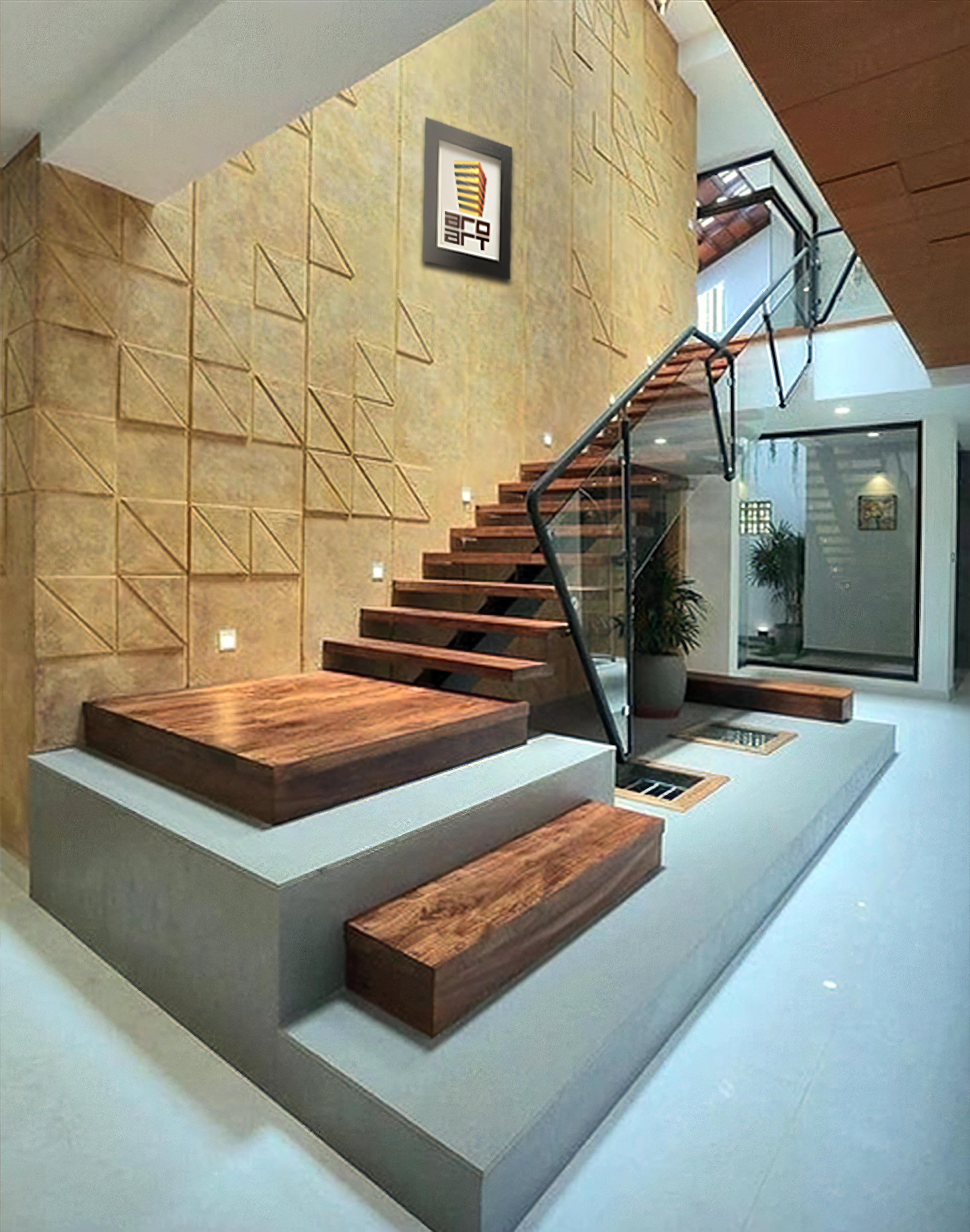
“This brand of wood could be used for bathroom cladding and flooring instead of using ceramic or marble,” Rashad said.
One of the most popular kinds of wood in Egypt is the plantation teak (a brown with a hint of red color) and the Brazilian teak (a brown color). Rashad also sells both kinds under his brand Tropik. The only difference between both is the color. Both endure the outdoor application. A lot of his clients use the plantation teak (one of Rashad’s biggest sellers) for the flooring of the bathroom. For example, a lot of people have used the plantation teak for kitchen tabletops, Rashad said. Rashad prefers the plantation teak over the Brazilian teak.
Both types could be used to make pool chairs, shower cabins, a garden fence, or a garden pergola, and some people even use it as an outdoor decoration of any sort.
“Rain, sun, cold, and humidity have no impact on it,” Rashad said. “It is the best choice for any outdoor application.”
It is resistant to extreme climate conditions. It could be used for outdoor furniture, exterior doors, and garden roof pergolas.
Many factors play into clients’ decisions of wood choice. Is the wood going to be used for decorative purposes or does the client want to expose the natural features of the wood? Is it for an interior or exterior space? What is the client’s budget? What colors and shapes do they prefer? Some people are not comfortable with the hint of red found in the plantation teak, so they choose the Brazilian teak instead, he said.
They experimented with both kinds in several forests until they started importing it into Egypt, and it has become one of his biggest sellers.
“We dry up our type of wood under the Tropik brand to tolerate a 12%-degree humidity. The wood processing is done outside of Egypt before we import it to be certain that it will endure outdoor conditions,” he said.
Out of all the kinds of woods he imports under the Tropik brand, the plantation teak is the one that Rashad describes as the “king” of the outdoor wood application.
“I have seen the plantation teak wood survive and excel in so many different environments. I saw a project executed with it 12 years ago, and the wood looks like it has been assembled a few days ago,” Rashad said.
Faggio(the brand) is a German beech wood. Beech wood is popular in the Egyptian market, but the lengths of the kind that Rashad imports are cut using the American standard (in feet), and its widths are also different than the ones found in the Egyptian market.
“Our beech wood is subject to a dehydration process that removes the maximum moisture, and the ones found in the Egyptian market are not like that,” he said. “80% of the bundle comes over a 20 centimeter width.”
The lengths that Rashad imports are at least eight feet (approximately 2.45 meters and up). The ones sold in the Egyptian market are within the average of one meter. The Faggio brand has been used by many Egyptian companies and many architects have requested it as well, Rashad said. It has been used in more than 17 projects in the New Administrative Capital City, New Alamein City, Galala City, and many real estate development compounds in Egypt.
This kind of wood is only for indoor applications. It is used in any area of the house apart from the bathroom (it has to stay away from water). Usually, woods that are only used for indoor applications must stay away from water, Rashad said.
There are many kinds of woods that could excel indoors. Rashad said that the choice of the kind of wood is up to the client. His job is to recommend which woods work best in the indoor or the outdoor space based on his years of experience and experimentation with the different types of woods. Some people like to change the color of the beech wood. However, Rashad does not recommend changing the color of any kind of natural wood.
“If you change the color of natural wood, you might as well just buy manufactured wood,” he said. “If a client wants a specific color, we can find them a natural wood color of their choice.”
The characteristics of the wood itself are what determines if it is applicable indoors or outdoors. For example, woods that excel outdoors usually do not get twisted quickly and can resist tough weather conditions.
“Just like human beings, wood has a soul. Some people can tolerate cold weather and others can’t. The same applies to different types of wood,” he said.
Some woods have a high degree of toleration while others don’t.
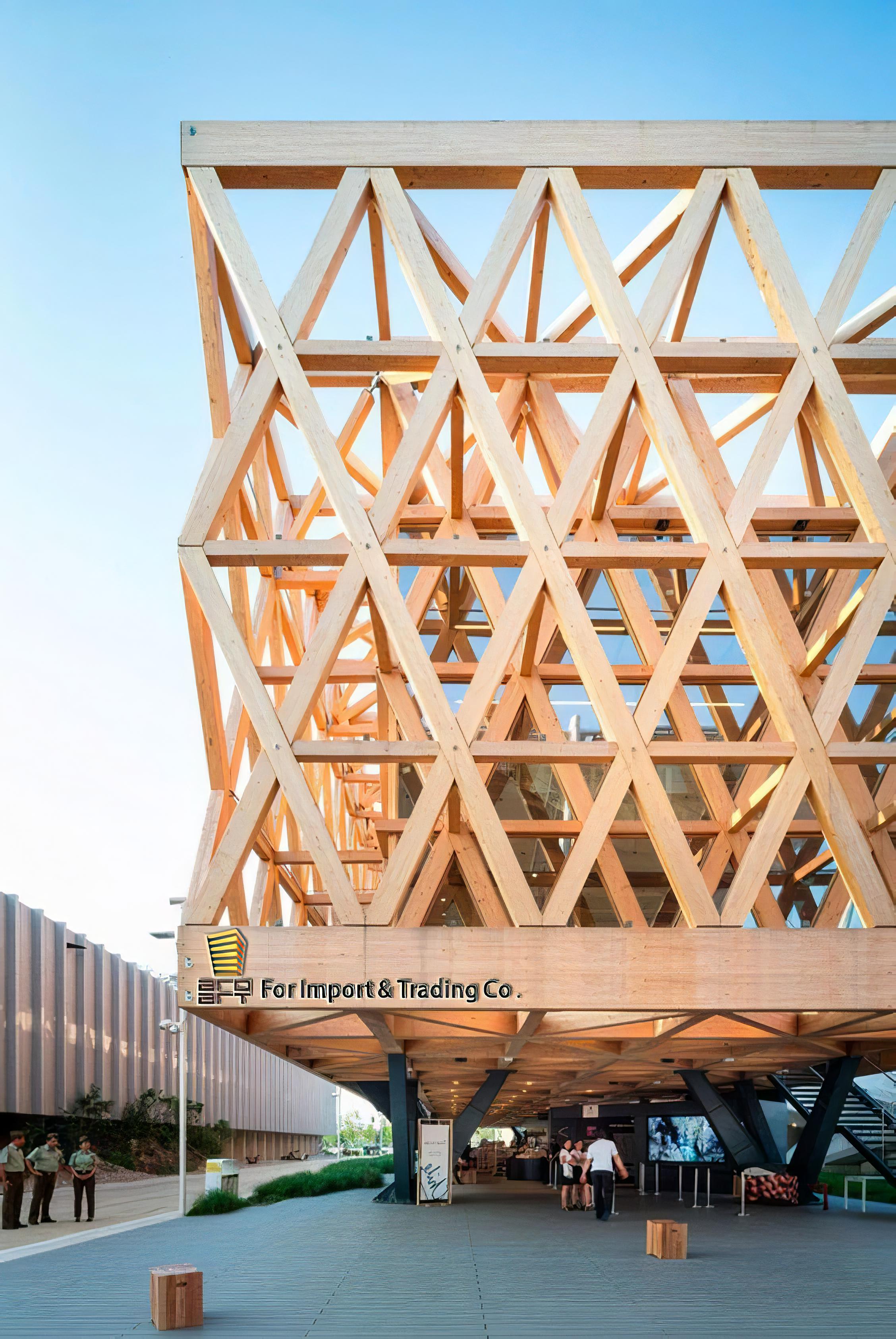
“Some of our experiments include examining how the wood will respond to water,” he said. “With time, we start understanding the properties of the different wood.”
He runs various tests to ensure the compliance of the wood to the known standards.
He imports the beech wood under the Faggiobrand from the United States and Germany.
There are many types of wood found under the Cherry Hill brand, and all of them are American wood, including red oak, white oak, cherry, walnut, hard maple, and yellow pine. The family business has been selling theCherry Hillwoods for 21 years. The woods under the Cherry Hill brand are only used indoors. The only kind of wood under this brand that could work outdoors is the yellow pine. However, Rashad does not recommend it. The prices of the different kinds are similar to each other, except for the walnut. The walnut is distinct in its color, smell, and texture. It’s extremely rich, Rashad said. It’s also not found easily in the American market which makes it expensive.
Spaanis Rashad’s only brand that is half-manufactured. The types of woods under the Spaan brand are the core, board, flex, plywood, and medium-density fiberboard (MDF).
The Spaan core is usually used for doors and is hollow, readily manufactured, sound-proof, and fire-resistant. This kind of wood could be used as door fillers and is executed with the frame of solid wood around the core with surrounding frames with veneers on both sides of the door. Up until they introduced the core wood in Egypt, the statistics of its usage in the Middle East and North Africa (MENA) region displayed 3% use. Today, it has reached 31% in Egypt.
“People have switched from the traditional techniques of manufactured doors to the techniques of manufactured core doors,” he said.
Spaan board is similar to the core and uses the same technology. However, the board is solid from the inside. The application of the board and core is for doors mainly but could be used in other things as well.
Spaanflex is an extremely flexible wood that could be shaped into any formation, including a cylindrical shape, Rashad said.
The Spaanplywood’s measurements that Rashad imports are not found in the Egyptian market. The ones found in the Egyptian market are the squared dimension plywood. Rashad imports the European standard which is the rectangular shaped plywood. This wood is mainly used for furniture and decoration. It is an indoor wood.
Rashad imports the SpaanMDF from Europe.
“There is a huge MDF market in Egypt, but the ones we import are of higher quality. It is an expensive wood,” he said.
Rashad imports the Spaan core from Germany, imports the Spaan board from Germany and Spain, imports the Spaan flex from Spain and the Netherlands, imports the Spaan plywood from Russia and Finland, and imports the Spaan MDF from Belgium.
Rashad has a large number of distributors across Egypt. He also has distributors in Dubai, Jeddah, Morocco, Algeria, and Tunisia.
Rashad’s wood is found all across Egypt in hotels, in residential work, in corporate work, in retail work, and in administrative work. He has three warehouses in Cairo.
